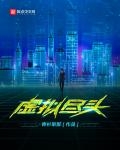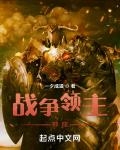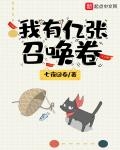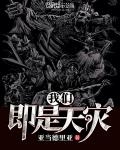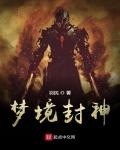Chapter 164: The Seventh Army Leaves the Border
As time passed, the news of the battle between Yuan Shao and Guo Hao had basically spread throughout the world, and it could be said that neither side had any room for regret.
No matter what people in the world say, the time for the battle is coming to an end.
Guo Hao gathered all the players who were willing to support Luoyang and asked them to serve as spectators to witness the military might, in order to dispel the players' little thoughts.
After all, most of them belonged to real-life organizations, and Guo Hao was still worried that they would turn against them under real-life intervention.
"Set off"
Guo Hao gathered his elite troops and formed a mighty army.
The whole army was in high spirits and ready. The truce during this period had allowed the soldiers, who were tired of the meat-grinding war, to return to normal. Soldiers on both sides had been able to relax and adjust to a considerable extent.
Guo Hao did not hide anything and left Xu Rong to guard Hulao Pass with a total of 150,000 troops under his command. Although they were all soldiers with single talents and militia, this number of troops was enough for Xu Rong to deal with various accidents.
He led seven armies out of the pass to fight Yuan Shao.
The First Army is located on the left wing. It is composed of 12,000 double-talented elite Xiliang Iron Cavalry led by Li Jue, Guo Si and others, and 30,000 Qiang auxiliary soldiers. The auxiliary soldiers under the support of the Iron Cavalry can exert the combat effectiveness of single-talented elites. Apart from anything else, they are qualified enough to be the main combat force.
The Second Army was located on the right wing, consisting of 15,000 double-talented elite Bingzhou Wolf Riders led by Lu Bu and Zhang Liao, and 30,000 single-talented Liangzhou soldiers. As for Ding Yuan's troops that had been recruited previously, they were all assigned to Xu Rong to defend the city.
To be honest, the troops in Bingzhou were polarized. Those who could fight were all the wolf cavalry under Lu Bu, and those who could not fight were all under Ding Yuan.
The troops under Ding Yuan may not be good at other things, but they are absolutely first-rate at defending the city. After all, they do not have the courage to go deep into the grassland to fight the Hu people, so they can only guard the border. In nine out of ten battles with the Hu people, they were defending the city, and then waited for Lu Bu to arrive with his men and rushed forward to fight a favorable battle.
The Third Army was located in the center, and consisted of 10,000 pairs of talented elite soldiers from the Changshui Battalion and the Shesheng Battalion led by Huang Zhong. Their firepower was enough to suppress all non-military soul forces. Even the Imperial Guards could not withstand their overwhelming firepower.
Changshui is an arrow that can wash the ground. One arrow shot out can make a big hole in the ground. It can be called an arrow-shaped missile. It is an archer specially designed by the Han Empire to kill miscellaneous soldiers.
Shesheng's main sniper function is to fight against those tough opponents or those generals who attract fire. The arrows have built-in locking and will attacks, which are both physical and mental strikes. Except for a peerless general like Lu Bu, no one can survive from Shesheng's concentrated fire.
However, the corresponding Shesheng Camp only has this one arrow, and the rest are no different from ordinary archers.
The Fourth Army was at the vanguard, and was a battalion of 16,000 pairs of gifted infantry led by Xu Huang. As the simplest infantry corps among the five schools of Beigong, they were all equipped with large swords and shields, and wore full body chain mail, with powerful crossbows slung around their waists and three javelins on their backs.
As the tool people in the five schools of Beigong, the infantry battalion has taken on too many things that they shouldn't have taken on. Not only do they have to attract firepower and bear damage, create output opportunities for Changshui Shesheng, but they also have to rush to attack and break the battle line, creating break in.
They are hardworking and known as infantry. Their main job is sword and shield infantry, and they serve in all infantry corps part-time. They can change roles at any time according to the needs of the battle situation.
The Fifth Army and the Sixth Army are the two wings outside the two wings. Guo Hao has no plan to leave any rear troops. Behind him is Hulao Pass, and there is no chance that someone will come out of Hulao Pass to stab him in the ass.
The Fifth Army is the right wing guard, which is composed of 8,000 cavalry led by Zhao Yun. Its only feature is stability. It is a stable elite cavalry with double talents. It is completely a cavalry of will, which is completely different from traditional cavalry. It relies entirely on willpower to attack and beat people.
It is a production of Huangfu Song's dark history. It is completely a crazy thing. Theoretically, the upper limit is the Imperial Guards or even the threshold of the Military Soul, and the lower limit is directly the miscellaneous soldiers. Whether they can exert their strength depends entirely on the level of the main general and the battlefield situation.
But unfortunately, theory is just theory. So far, Huangfu Song has not been able to make this unit to achieve the strength of the Imperial Guard. It was even defeated by the Yellow Turbans when fighting against them. This is a shame among the five schools of Beigong.
It was originally a type of cavalry that could win big with small efforts, but in reality, it turned out to be a classic type of cavalry that bullies the weak and fears the strong.
But Zhao Yun is different. His legion talent has a calming effect, and his cavalry has stable dual-talent combat power. Although it has lost its theoretical ups and downs, it is still a regular troop.
To be honest, Guo Hao actually wanted Lu Bu to lead Tunqi. When it comes to willpower, it still depends on Lu Bu, the God-Breaking World. However, Lu Bu refused Guo Hao. He preferred to lead Wolf Cavalry, and Lu Bu's talents were more suitable for Wolf Cavalry.
The Sixth Army is the left-wing guard Yue Cavalry, which consists of 8,000 Yue Cavalry led by Ma Chao. To be honest, Ma Chao's legion talent is indeed suitable for the Yue Cavalry, which can improve the reaction speed of the soldiers. The Yue Cavalry was originally a light cavalry that relied on high-speed movement and was originally known as the fastest cavalry in the world.
But now they have been completely defeated by the white horses, and even the current Yulin Army can't outrun them.
Guo Hao was arranged on the left wing in order to help the Xiliang Iron Cavalry. They were not afraid of a head-on confrontation with the Xiliang Iron Cavalry, but if the enemy started running around, the Xiliang Iron Cavalry would be in trouble, as their short legs basically made them the bottom of the cavalry.
Basically, Guo Hao brought out all the five schools of Beigong. It was not that he did not want to bring the eight schools of Xiyuan, but the settings of the eight schools of Xiyuan had problems. Their current status was not suitable for fighting outside the country, and they could only be left in Luoyang and Hulao as garrison forces.
The Eight Schools of Xiyuan inherited the Five Schools of Beigong. They were Huben, Zhonglei, Tuqi, Huanian, Heavy Cavalry, Chixue, Jiashi and Ruishi. All eight troops were trained by Huangfu Song.
However, when they were all half-baked, Huangfu Song and Zhu Jun began to play dead and act like fence-sitters, so they failed for a long time. The half-baked talents failed from time to time, and Guo Hao didn't dare to pull them onto the battlefield.
The scale of the elite troops of the five Beigong schools was actually not that large, but the coalition forces were training before, so Xu Rong was naturally also training.
All those who originally had single talents were given double talents. Even if they were just pigs, they would have become elites after experiencing a battlefield where nearly hundreds of thousands of people died.
The Seventh Army is composed of four elite legions led by Guo Hao himself, including the Flying Bear and Xianzhen Military Soul Legions, and the Xiandeng and Sun Imperial Guard Legions.
Logically speaking, if the coalition forces did not have 8,000 white horses in their hands, Guo Hao would have defeated the coalition forces in one wave.
It was really that the cards in Guo Hao's hand were too strong. If it weren't for the fact that he needed these hundreds of thousands of soldiers who had experienced battlefields in the future battles against the Hu people and the Northern Huns, Guo Hao would have used counter-espionage and psychological warfare at this time, and many princes and players would have been willing to join forces with him to break up the alliance.
However, doing so might prevent him from fully accepting the coalition forces, which would be inconsistent with his original intention. He still wanted to swallow the whole coalition in one bite.
That way he would have enough power to deal with the coming crisis. The existence of Japan and the Northern Huns is always a threat.

